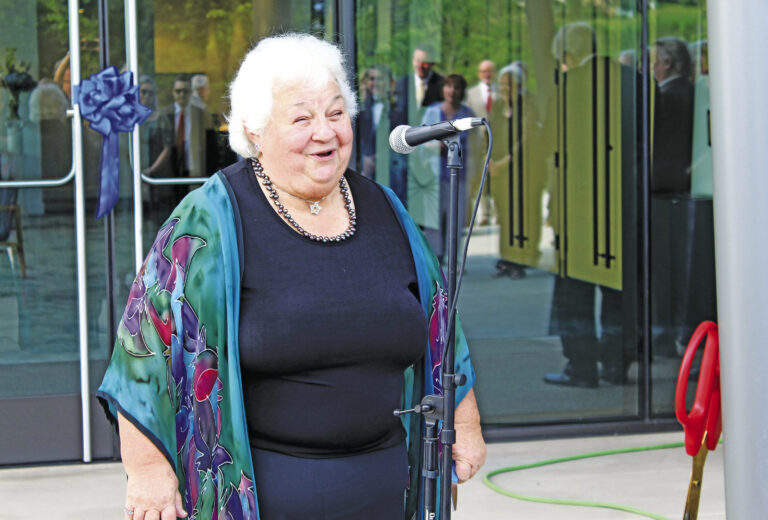By Rick Harvey
Eureka Springs Times-Echo
A joint workshop between members of the Eureka Springs City Council and the city’s hospital commission came to an abrupt ending when conversation started to shift away from what the leaders of each group said was the sole discussion of the day.
“Harry, let’s stay on point, on focus, this is about a financial overview,” mayor Butch Barry told council member Harry Meyer during the workshop held Wednesday, June 4, after Meyer asked a question about employee turnover.
Meyer, one of only three council members who attended the workshop, repeatedly asked questions and brought up concerns about various aspects of the hospital, only to be told by Berry and hospital chair Sandy Martin that the lone topic of the workshop was the hospital’s budget.
While workshops held by council and various commissions often have a primary topic, they typically aren’t limited to one subject, as is required of special called meetings of a body.
“I thought we were going to have a workshop,” Meyer said after being told he was going out of the scope of the topic of the day. “Well, it’s more than just finance. The person that asked about finances is not here.”
Council member Rachael Moyer has repeatedly asked questions of Martin and hospital staff regarding budget figures, but wasn’t at the workshop, which began at 2 p.m. Council members Terry McClung and Susane Gruning also were not in attendance.
Meyer and council members David Avanzino and Steve Holifield joined hospital commissioners Brian Beyler, Kate Dryer and David Carlisle, along with Martin, Berry, hospital interim CEO Jodi Edmondson and chief financial officer Cynthia Asbury for the session, which lasted just more than an hour.
After a 30-minute PowerPoint presentation from Bo Ryall, president and CEO of the Arkansas Hospital Association, regarding the state of hospitals across the state — specifically honing in on Rural Emergency Hospital facilities, Asbury gave a quick overview of the hospital budget.
“With inflation, … our prices were going up,” Asbury said during her report. “We’re doing what we can to control those, to watch those numbers and maintain it within a balance. I think we determined about $550,000 a month is our kind of average expenses, kind of what we anticipate. Continuing to look at contracts, continuing to look any way we can to reduce costs and expenses in that area …”
Council members asked about contract labor versus hiring full-time staff and Asbury — as she reported in the commission’s monthly workshop held Monday, June 2 — said the two are close to even.
“Back in [2023], we did a cost-benefit analysis within our contract labor versus our current staff, PRN, on-call pays, callbacks, call-ins, things like that, overtime that was paid to staff, and within that cost-benefit analysis, we had pretty equivocal between the benefits we were paying employees in overtime to what our contract labor currently runs,” she said. “The benefits of our contract labor — well, we do not have as many call-ins, we don’t have as many issues of say, our director of nursing or CNO or somebody having to cover a shift after working, a 12-hour shift.”
“So, you feel like, Cynthia, that it was pretty even?” commissioner Kate Dryer asked.
“The numbers were pretty even, but then we had the positives of that, like I was saying, was with the more consistent schedule coverage,” Asbury said. “They work their three 12-hour shifts. That’s typically what their contract requires at minimum, and most of them are even willing sometimes to pick up other shifts because they’re here from out of the area.”
Martin said the goal is to have a hospital full of local, full-time staff, but the contract labor has been a benefit to the facility in recent months.
“We would prefer to have local employees …, particularly, because it’s a wash,” she said. “I’m glad to hear that. However, the contract labor has saved our bacon. And we had no choice to do that. And we need to build up recruitment. But we’re hiring. We have advertised that we’re hiring… But from a financial standpoint, when we look at that with the current situation, it’s six of one, half a dozen of the other …”
Meyer emphasized the importance of hiring local staff, especially when it comes to issues that may arise in a facility.
“The cost isn’t the big deal,” Meyer said. “If you look at the research, research has documented occupational health disparities, including higher rates of work-related injuries among temporary workers compared to the workers in standard employment arrangements. And we’re talking about hospitals now, health care. And also, a contract employee knows that they’re going to be here for just a short period of time. So, if they see something that’s going on that, you know, should be reported, they’re not going to report it. They’re going to collect their pay and they’re going go on.”
Dryer responded: “We haven’t found that to be true.”
“… You may think that you have got some insight into this, but it’s just not true,” Meyer responded. “Now, if there’s a problem with keeping full-time employees, then that’s the employer’s problem. That starts at the top.”
Carlisle said that while problems in the past may have been kept quiet, issues seem to have gone away when it comes to the hospital’s working environment.
“There’s a crowd that didn’t report problems, and they’re not here right now,” Carlisle said. “So, the fact of the matter is that statistics are good for large numbers, but in a small environment you can’t … they don’t predict in a given situation what’s going to happen, but we prefer local employees. We’re searching for local employees, and our employees at the present time are not coming up with a lot of, they’re not coming to complain.”
Meyer quickly interjected.
“You have not heard the complaints?” Meyer said. “Heard the complaints?
FUTURE IDEAS
Martin discussed ideas being discussed that could provide new revenue sources for the hospital.
“Just as a historic perspective, the Arkansas Business Journal did a review of REHs converting last October … and it pulled each of the hospitals’ history financially,” she said. “It’s interesting, from 2018 to 2023, Eureka Springs Hospital lost anywhere from $1.6 to $3.3 million. And that’s something that the commission looked at that went into the decision to relieve Alliance of its duties, and take it over, and we’ve shared with you before the history of where we were in a deficit, that chart that I handed out at one of the council meetings, that the commission and the staff dug us out of a hole and got us into positive things.
“… Last October or November, I think, there were two months last year that we actually flipped into the black, which was great. So we know that it’s possible that we can operate in the black. When we put our budget together, we had obviously not a lot of information as far as REH. We had no information as what we were going to go through with the surveys. We budgeted for a break-even because, again, there are so many unpredictable things we didn’t have a choice. We don’t think that we’re going to hit the $14 million that we projected, but we should know within the next two months what we will hit, but it’s not going to be half of that. It’s going to closer to the 14, I think, with that.”
New outpatient services is a key, she said.
“We obviously need to build outpatient services,” Martin said. “We need to do a lot of things. Our plans are, we’ve gone through, we’ve got our REH consultant has given a plan that identified some revenue options and services to go into that basically the staff had already identified medical recommendations, so we’re actively going to pursue those. Maternal care, mental behavior. Those things keep coming up. We’re hoping to work with UAMS with that. We’re looking at, if we can afford it, we’re looking at our own transport van that also might be a mobile clinic to be able to go where patients are because transportation, particularly in our area, that has older patients, transportation is an issue. It’s clearly an issue when it comes to the winter months in Carroll County. …”
‘A SNOW JOB’
Even until the meeting was abruptly ended, Meyer continued to voice displeasure about not being able to discuss or ask questions about various aspects of the hospital, including blood divert, staffing issues and complaints from former employees.
“I thought we were here to discuss the hospital,” Meyer said on more than one occasion.
“I thought we were here talking about the money and the budget,” Beyler said.
Berry responded: “Actually, it’s a budget issue. We’re talking about finances.”
That led Meyer to ask about the blood divert issue that was resolved on Monday, June 2.
“My point here is competency,” Meyer said.
“Are you saying we don’t have competent help?” Beyler responded.
“We don’t have competent leadership at the hospital,” Meyer replied.
Berry interjected: “…We have competent doctors.”
“…We do not have competent leadership. We do not have competent administration,” Meyer said.
“Yes, we do, Mr. Meyer,” Dryer quickly replied. “Yes, we certainly do.”
“We’re going to have to agree to disagree on this,” Berry said. “If you want to be on the hospital commission, you’re more than welcome to resign from council and I’ll be glad to put you on.”
Moments later, Martin said: “I think we are close to concluding this workshop.”
“…We’re talking about finances right now,” Berry said.
“Well, you’ve got to have a hospital when you want finances,” Meyer answered.
“You’re talking about past issues,” Berry said. “We’re talking present. I’d like to see some solutions. I don’t want to … we know what the problems have been.”
Meyer replied: “There are still problems to solve.”
“And I think the commission is working on those right now,” Berry said.
“I have no confidence in the hospital,” Meyer said.
Beyler quickly responded, asking Meyer if he had been to the hospital recently.
“Have you gone up there and visited the facility, looked at it?” Beyler asked.
“I’ve been in that facility,” Meyer responded.
“In the last six months?” Beyler replied.
Meyer indicated he had not been in the facility in the last six months, and moments later, Berry wrapped up the discussion.
“This is going to be fact-finding,” Meyer said as things were being adjourned. “It’s a snow job.”


